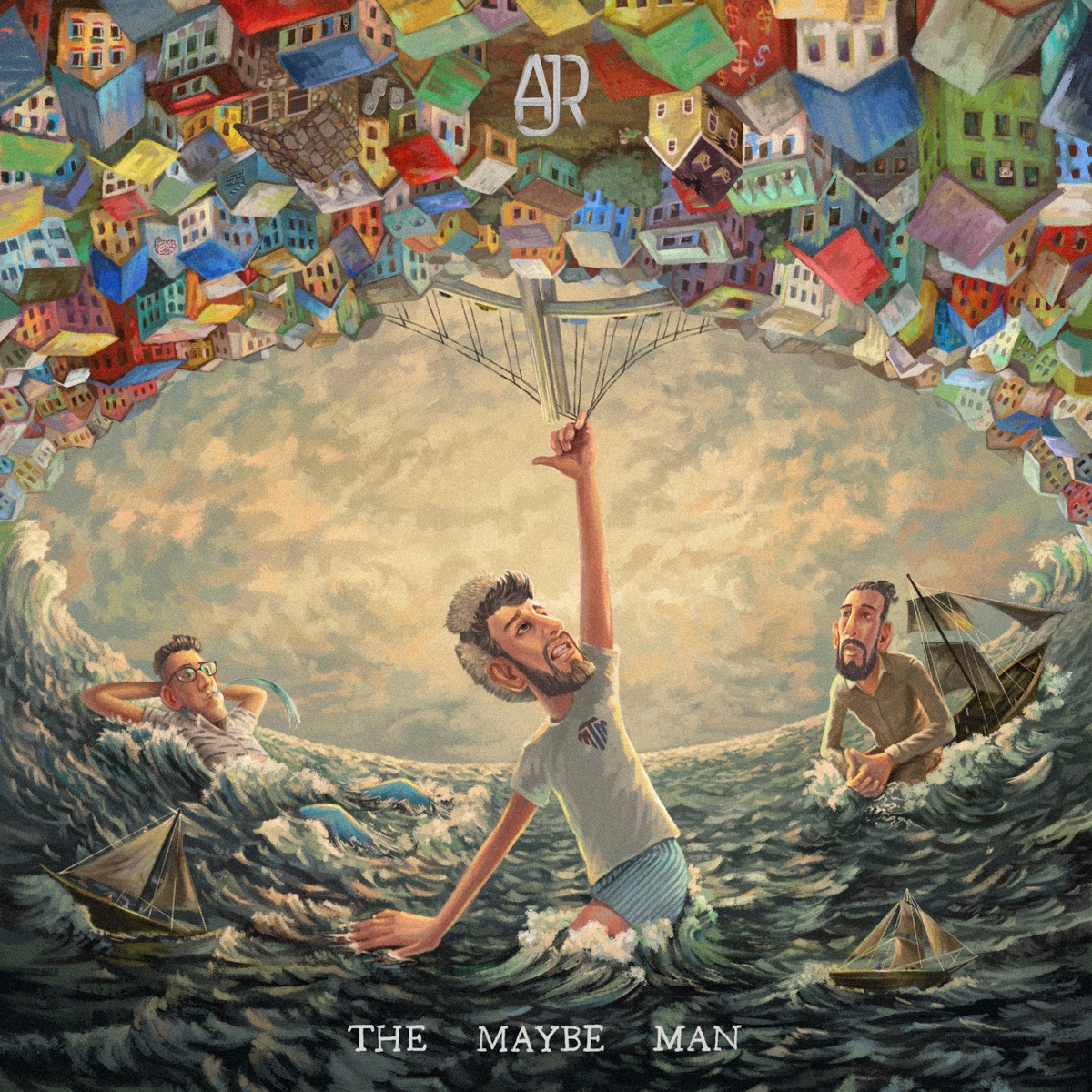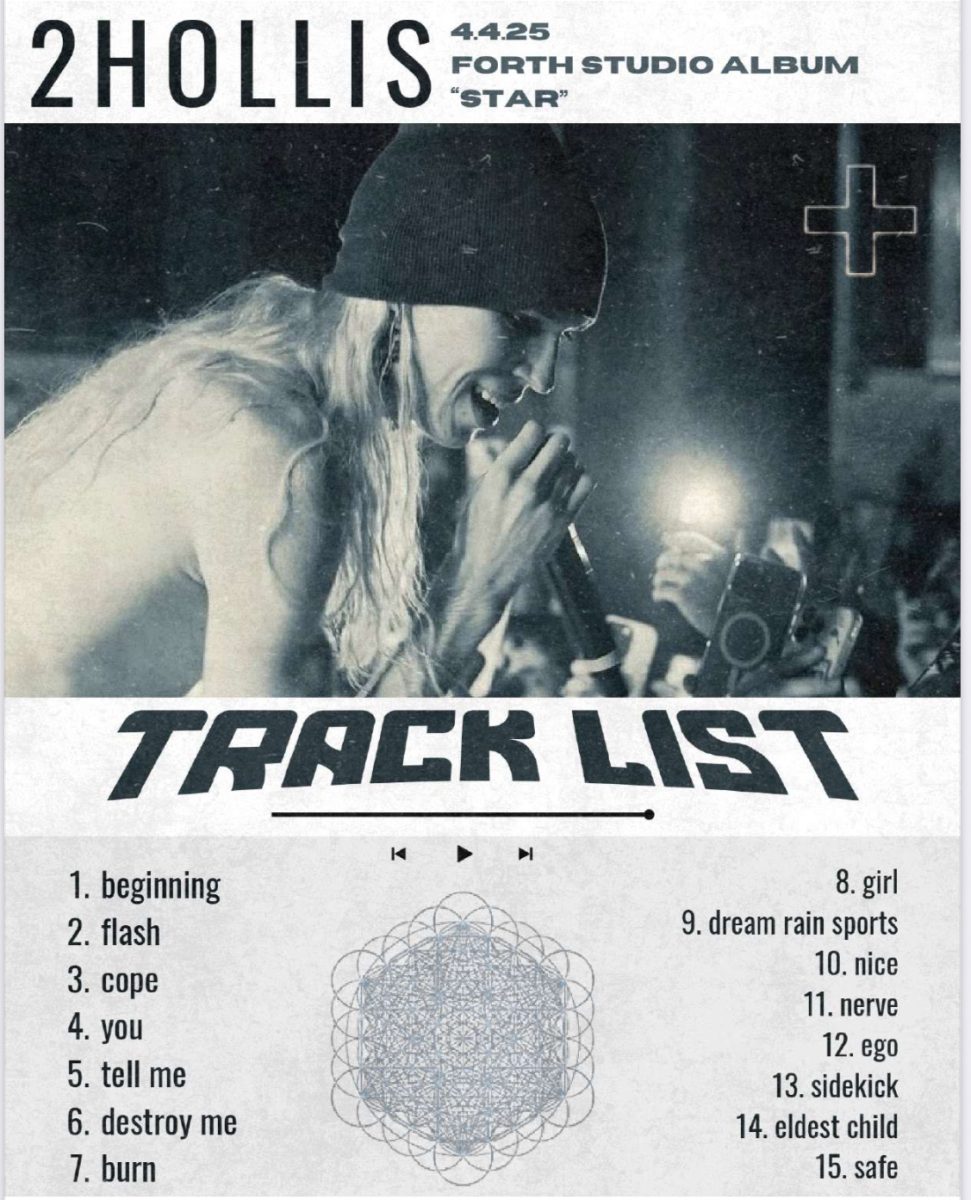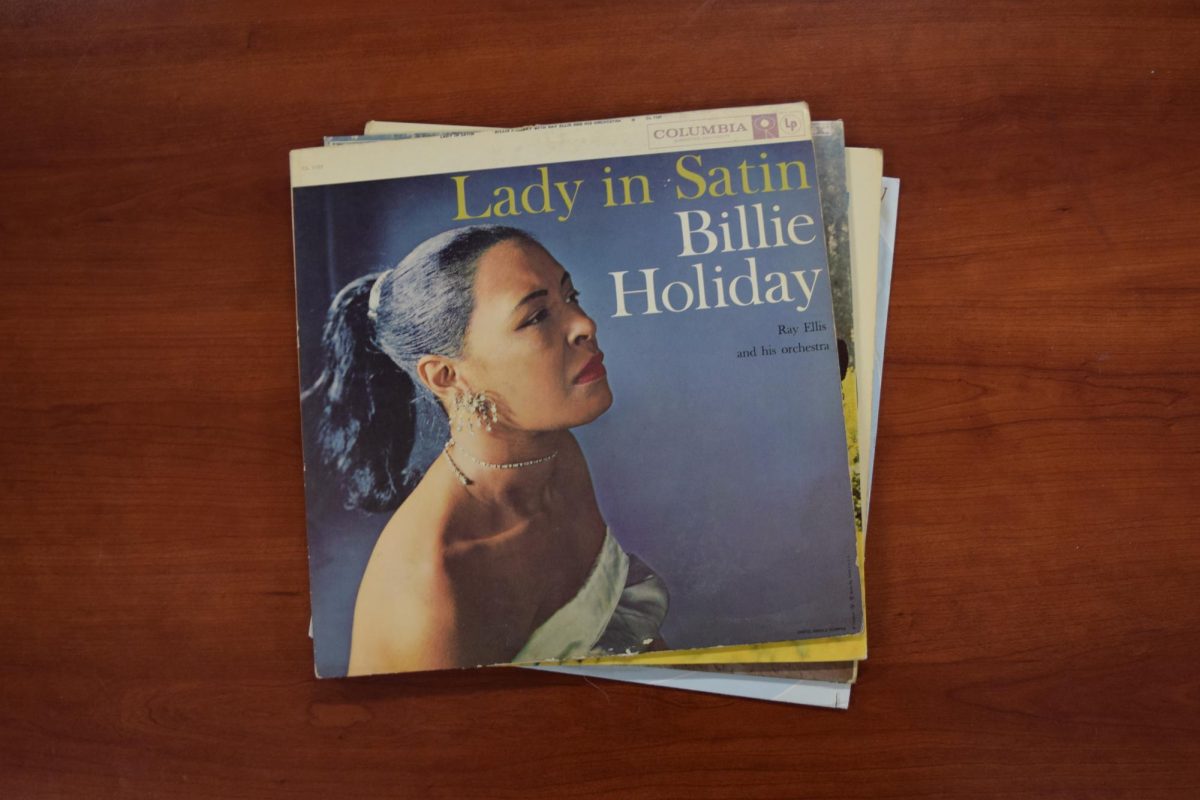You can always find the theme of an AJR album by its title. Their 2021 album OK ORCHESTRA featured sounds from many symphonic instruments, from the violin to the xylophone. 2019’s Neotheater glistened with contemporary, unique, and theatrical sounds that gave the album a bit of spice and texture.
The three brother trio, Adam, Jack, and Ryan Met, released their newest album, The Maybe Man, on Nov. 10. And, predictably, it’s all about uncertainty; our protagonist is weary about growing up, about drug and alcohol culture, and about love and relationships.
It’s the most relatable, heart-churning album they’ve released.
AJR has a common theme with three out of their four albums, prior to The Maybe Man: an overture. Their first track on each is a compilation of every other song, combining beats, rhythms, and melodies from every corner of the album. Rather than doing another overture for this, they created a masterpiece, “Maybe Man,” a song that they called a “table of contents” for the rest of the album. Rather than sampling melodies of other tracks, it referenced them and their unique lyrics.
For example, the first verse, “Wish I was a stone / so I couldn’t feel,” relates to “Touchy Feely Fool,” a song all about being unable to let go. The narrator can’t break up, because he has too much sympathy. He wishes that his “brain would triple in size” in verse five, which relates to “The Dumb Song.” He wants to win arguments and make laughable jokes, while avoiding condescension.
The Maybe Man perfectly defines the character arc of the group. Since their first album in 2015, they’ve transitioned from strange experiments with yodeling and voice modulation to a cohesive, steady style. Rather than a strange obsession with electronic sounds. AJR has developed into something more authentic.
It’s also the messages of their newer songs that hit harder than the strange melodies of 2015. They go into mental health, grief, and addiction.
A critical flaw with The Maybe Man was how AJR chose to release it. Before the album came out, they had already put out five singles (“I Won’t,” “The DJ is Crying for Help,” “The Dumb Song,” “God is Really Real,” and “Yes I’m a Mess.”) With a 12-song album, this only left a handful of new songs to discover.
It’s a crime how much of the album was already revealed before the release. Despite this, the album still brought great melodies, from the first single to the last track.
“God is Really Real” might be the most gripping tale of sadness and loss we’ve seen out of AJR. Gary Met, the trio’s father, passed away in July 2023. They originally planned to release the song with the rest of the album, but instead filmed a quick lyrical music video and put it out as a single.
It might be the most uncertain song out of them all. The protagonist starts to question his faith. Is God real? Is Karma real? It’s a deeper dive into sorrow than we’ve ever seen from AJR before.
But the whole album wasn’t sad. “The Dumb Song,” “Hole in the Bottom of My Brain,” and “Inertia,” were fast paced, providing frantic bridges between slower rhythms.
And I can say this with confidence: “Inertia” is one of the greatest songs AJR has ever released. The lyrics are tenacious, the melody is captivating, and the chorus is grand and evokes true emotion, even though he’s “lost all emotion.”
Even with its quick tempo and high pitches, “Inertia” is actually fueled by rage. He wants to be “big like [his] plans.” He wants the perfect body, he wants to move out of his small town, but he’s just stuck. Sometimes, nothing is more relatable than that.
A heart wrenching finale has been a recurring pattern in AJR albums, like “Christmas in June” for OK ORCHESTRA and “Finale (Can’t Wait to See What You Do Next)” for Neotheater. The Maybe Man followed suit, but “2085,” the final track, was more engrossing than any finale before.
The first half of “2085” is a fairly standard, upbeat melody. The second half takes a 180. The first-half lyrics talk about reflecting on a long life. The second half is a desperate plea to a loved one to stay alive: “you gotta get better, you’re all that I got.” This once again referenced the death of the brothers’ father.
I often find myself skipping to the three minute mark of “2085” to hear the second half. It begins with a quiet, sad, computerized voice singing. Its modulation makes it sound like a somber clarinet, almost sobbing its way through the song. Then, the grand ending comes along, combining booming low brass, high-pitched background vocals, and blaring trumpets.
Never have I heard such a gripping song. It’s pumped full of emotion, from mourning, to sorrow, to desperation. “2085” is absolutely the perfect way to complete such a profound album.
Even though we had already heard almost half of the album when it came out, nothing changes the indisputable fact that this is the greatest album AJR has ever released. Their vulnerability and openness of raw emotion provides a compilation of songs that are nothing short of genius.








